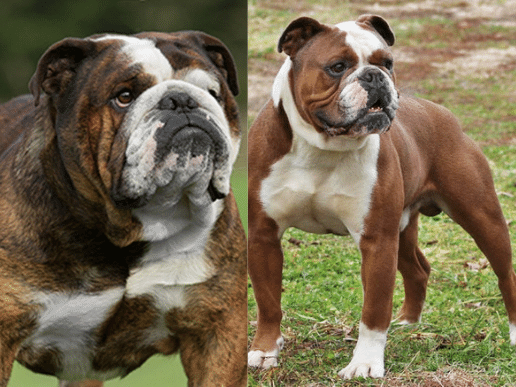Why Are Chihuahuas So Mean
A tiny ball of fur with eyes that seem to say “I own the world.” You’ve just encountered a Chihuahua, notorious for its larger-than-life attitude packed into a pint-sized body. While their small stature might lead us to expect sweetness, some Chihuahuas exhibit a mean streak that can leave us scratching our heads.
But have you ever wondered why some Chihuahuas can be downright mean? Let’s dive into the intriguing world of Chihuahua behavior and uncover the secrets behind their feisty nature.
7 Reasons Why Chihuahuas Are So Mean
1. Chihuahuas Are Territorial Dogs
Chihuahuas lean more toward being defensive than friendly. If you approach them while they’re eating or resting, they might snap. Thankfully, they do give off warning signs before going into full defensive mode, and it’s important to recognize them to avoid unpleasant encounters. These signs include:
1. Growling: They emit a high-pitched “grr” sound, often their first step before attacking. It can also mean they’re scared and trying to seem tough.
2. Stiff Posture: If they’re confident and ready to defend, they’ll stand rigid. Avoid eye contact and quietly move away.
3. Showing Teeth: When angry, they bare their teeth to warn you. If you ignore this, they might resort to biting.
4. Muzzle Punching: Similar to a human punch but using their nose. This might escalate to biting if done forcefully.
5. Tail Position: A still tail that slowly moves side to side signals a shift in mood from happy to cautious.
Defensive Chihuahuas also stick close to items they’re protecting. Whether it’s their food bowl or you, they’ll stay nearby. Even if they don’t trust someone, they’ll stay close to you. So, if you want a smooth interaction, being mindful of these signs can make all the difference.
2. Negative Experiences from Earlier Dog Owners
Just like humans, Chihuahuas can suffer from Post-Traumatic Stress Disorder (PTSD) due to their earlier experiences. For instance, if a Chihuahua has been raised in an abusive environment, they might endure flashbacks of those distressing memories or harbor negative associations from their past owners.
With the rising number of dogs needing homes, rescue dogs, including older Chihuahuas with prior ownership, are becoming increasingly popular choices. However, not all rescue Chihuahuas are guaranteed to display aggression. Consequently, you might not be fully aware of the challenges your newly adopted Chihuahua has faced before. Their lack of proper socialization or training under previous owners, and in some unfortunate instances, exposure to abuse, could contribute to their behavior.
When considering adopting a Chihuahua, it’s important to recognize that their past life might not be fully disclosed. It’s sensible to go through their previous veterinary records and educate yourself about any potential triggers that might cause distress. By doing so, you can provide a supportive and understanding environment for your new companion.
3. Anxiety-Related Behavior
Aggression in Chihuahuas can often be traced back to their anxiety. When faced with something frightening, they resort to barking to attract attention.
A variety of anxiety-related issues exist, including:
Past Traumas: Memories of previous accidents can trigger fear and anger in your pet.
Noise Anxiety: Chihuahuas may fear loud sounds like thunderstorms or heavy rain.
Separation Anxiety: Leaving your dog alone for extended periods can lead to this form of anxiety.
These anxiety issues can also lead to destructive behaviors such as breaking items, tearing up toilet paper, chewing furniture, and scratching doors.
4. There could be underlying health problems.
Unfortunately, dogs are quite skilled at concealing their medical conditions. Our Chihuahuas also do a wonderful job of concealing their suffering. For your pet, it might be a skill, but for you, it would be a nightmare.
You risk making your dog hostile if you unintentionally touch any part of his body where he hurts because of a condition. Chihuahuas frequently experience dysplasia, eye issues, heart conditions, dental issues, and Legg-Perthes disease. Dog owners must understand the basic aspects of canine illness so they can determine whether their Chi is ill.
5. Poorly Bred Chihuahuas
It’s worth noting that a Chihuahua’s appearance and temperament are passed down from their ancestors. Their genetic predisposition plays a significant role in shaping their behavior.
A friendly lineage can contribute to the likelihood of having friendly offspring. It’s advisable to personally meet the biological parents when adopting a Chihuahua from a kennel. This interaction provides insights into what your future pet might be like. While Chihuahuas come in all kinds of personalities, if you’re seeking the ideal canine companion, you can’t go wrong with a Chihuahua. Studies reveal that genetics make up 35% of a dog’s personality, while the remaining 65% is influenced by socialization and training.
6. Chihuahuas Do Not Like Unfamiliar Places
Chihuahuas are not only timid towards strangers but also unsteady in unusual environments. They are security-conscious and feel safe and satisfied in their current location. Your tiny Chi can find it overwhelming to adjust to new sounds, scents, voices, and animals as a result of relocation, and they may end up showing hostility to strangers and developing behavioral problems.
7. Female Chihuahuas Are Aggressive
Female dogs frequently become aggressive during their cycles, and Chihuahuas are no exception. An abrupt change in hormones can have a detrimental effect on a female dog’s temperament since it causes irritation and anxiousness in addition to physical discomfort.
How to Deal With Mean Chihuahuas?
1. Training
Effective training is essential for all dog breeds, and starting early is key to preventing bad behavior from becoming habits. As dogs mature, addressing bad habits becomes more challenging.
For Chihuahuas, given their personality, establishing your authority is crucial. Avoid laughing off disobedience; instead, ignore it. Shouting or punishing is counterproductive.
Crate training helps counter aggression due to separation anxiety and relocation.
Begin socialization between seven and 16 weeks of age. Puppyhood is when dogs learn to interact with strangers and new places.
Struggling with training? Consider certified dog training classes. Professional trainers offer unmatched expertise and advanced knowledge to aid in your Chihuahua’s development.
2. Exercise
Regular exercise is a potent tool against aggression in dogs, ensuring their physical health and warding off boredom. Chihuahuas, though small, are incredibly energetic and demand ample daily exercise to maintain fitness. Neglecting this could result in pent-up energy manifesting as aggression.
Physical activity also bolsters overall health, guarding against diseases that can trigger aggression.
Typically, Chihuahuas require around 30 minutes of exercise daily. Some experts suggest up to 45 minutes, considering factors like diet and age. Keeping your Chihuahua active not only curbs aggression but also fosters a vibrant and well-balanced companion.
3. Spaying or Neutering
While not a standalone remedy, spaying or neutering can significantly contribute to curbing aggression in dogs. This procedure plays a pivotal role in mitigating some of the irritating hormonal fluctuations that can lead to mood swings and aggressive behavior. By undergoing spaying or neutering, certain hormones are no longer produced, which tends to promote a calmer and more composed demeanor in dogs.
Although this measure isn’t a guaranteed fix for all aggression-related issues, it’s a step in the right direction. Spaying or neutering aligns with the well-being of your canine companion, potentially leading to more harmonious interactions and a happier coexistence.
4. Vet Visits
Regular veterinary visits are paramount for your Chihuahua’s well-being. Chihuahuas have a knack for masking illnesses and discomfort, underscoring the necessity of routine check-ups. By adhering to a consistent vet schedule, you can proactively address potential health issues that might be fueling their aggressive tendencies.
These visits not only enable early detection and treatment of hidden problems but also promote overall longevity. By safeguarding against undetected ailments, you contribute to a healthier and happier life for your furry companion. Moreover, regular vet visits foster a strong bond based on care and attentiveness to their needs, ensuring your beloved Chihuahua enjoys a vibrant and fulfilling existence. Prioritizing routine check-ups is a proactive measure that not only manages aggression but also secures a brighter future for your cherished canine companion.
Conclusion
Understanding why some Chihuahuas exhibit mean behavior requires delving into their history, genetics, upbringing, and individual personalities. Factors such as territorial instincts, past traumas, and inadequate socialization can contribute to their feisty demeanor. By recognizing these influences and implementing appropriate training, socialization, and care, Chihuahua owners can foster a more harmonious and positive relationship with their furry companions. Remember, behind the tiny exterior lies a complex blend of nature and nurture, shaping each Chihuahua’s unique temperament.

Hey, I’m Caroline, and I’m all about bulldog love, travel, and lending a helping hand to shelter pals. Writing about dogs for five years has let me share the magic of their stories and the world of pet care. My heart? It belongs to Bella, my amazing bulldog sidekick. Together, we’re off on adventures, spreading kindness, and making shelter life brighter. Join us in celebrating the joy of dogs and making a difference!






